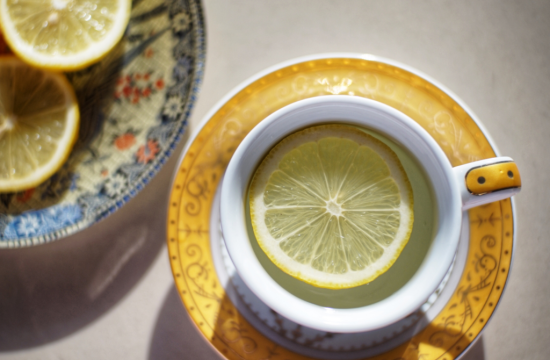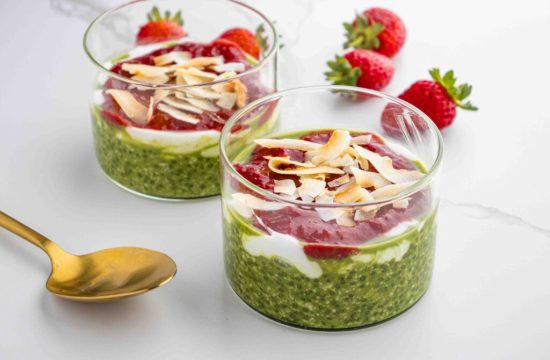Article by Dr Raghuram Y.S. MD (Ay) & Dr Manasa S, B.A.M.S
Dina = day, daily
Charya = regimen
Ayurveda has given very much importance to Dinacharya – the daily regimen and its contribution towards maintenance of physical, mental and emotional health. It is just like a calendar of events which need to be followed on a daily basis. The more we get habituated and addicted to following these regimens, the healthier and immune we are. We can keep away all the physical, mental and emotional problems, which we would otherwise be victims of, while following dinacharya habitually.
The Ayurveda treatises, including the great trio, Charaka Samhita, Sushruta Samhita and Ashtanga Hridaya and Ashtanga Samgraha have dedicated separate chapters for explaining the practices included in Dinacharya which everyone should follow in order to keep themselves healthy and also to maintain optimum health. The later treatises have also followed the footprints of these treatises.
Though following each and everything explained in the context of Dinacharya seems impractical in the modern day life, we can try to inculcate at least some of them into our lives and get habituated to them.
While going through these chapters dealing with dinacharya we may appreciate their contribution towards physical health, but we may fail to notice their role in maintaining mental and emotional health and balance since there is no mention of the same in many contexts.
In this article we shall look deep into the components of Dinacharya and see how good their contribution is towards maintenance of mental and emotional health and balance.
Classification of Dina – day for understanding application of Dinacharya
Dina means a day which extends from sunrise to another sunrise i.e. duration of 24 hours. The regimen followed in a dina constitutes dinacharya. They can be classified into the below mentioned categories –
– Pratah Charya – all regimens which we would follow during the earliest part of the day i.e. from before sunrise when we wake up to few hours extending from there
– Dina / Madhyahna Charya – all regimens that we need to follow during the rest of the day time i.e. from the end of early morning regimens / rituals to beginning of evening time
– Sayam Charya – all regimens that we would follow during evening time i.e. from commencement of evening to commencement of night
– Ratri Charya – all regimens we need to follow during night time i.e. from commencement of night to the bedtime
- Impact of Day time regimen on mental and emotional health
In this section, I will consider the day time regimen as the combined activities we do during the day time i.e. early morning, day time and noon.
Impact of Awakening early in the morning at Brahma Muhurta on the mind
Brahmi or Brahma Muhurta also known as ‘time of the creator’ is the earliest hours of the day before sunrise – ‘the pre-dawn’ period, roughly falls between 3-6 am. Ayurveda advocates waking up at this time after a completed and satisfied sleep. This contributes towards comprehensive body-mind-sensual wellbeing and balance.
Benefits of waking up at Brahma Muhurta – ‘the calm and pleasant morning hours’ in maintaining and balancing mind and emotional health –
It will keep our mind and senses fresh and enhance alertness with practice.
This is an ideal time for the students to study or revise. Things learnt at this time can be better remembered.
Yoga, exercise, meditation, pooja and Surya Namaskaram done during this time will create positive vibes and will keep the mental and emotional health at optimal levels and are de-stressing. It will also help in spiritual evolution of individuals and conquer or prevent many mental disorders.
This is an ideal time for Exercising, walking and jogging at this time will keep us best oxygenated and the early morning sunrays would provide us with vitamin D supplies which are important for our body-mind-emotional health.
Balanced Prana Vata, Sadhaka Pitta and Tarpaka Kapha are responsible for healthy nervous and mental functions and so are high levels of Sattva quality of mind and balanced state of rajas and tamas qualities of the mind. Brahmi Muhurta will have a positive impact on these components and contribute towards serene mind-emotional health.
Impact of Voiding urine and feces early in the morning on mind health
One should freshen up by voiding urine and feces the first thing in the morning. When the body gets free of its impurities, the mind and senses would get relaxed. That is why one would say ‘I would like to freshen up’ when he or she wants to evacuate their bladder or bowel.
Impact of Oral Health and Hygiene on mind and emotions
The below mentioned activities are recommended for maintenance of oral health and to balance the doshas in the mouth, head and sense organs. They are –
Achamana – sipping of water – provides first hydration early in the morning after waking up, activates bodhaka kapha and regulates the udakavaha srotas – channels of water transport system in the body. It is the first rejuvenation of body and mind that we would do in the day. We also activate the kapha system since it is dominant at day time.
Danta Dhavana (brushing the teeth), Kavala (mouth wash), Gandusha (gargles) and Jihva Nirlekhana (tongue scraping) – These are not just the regimens we do to cleanse the mouth, teeth, throat and tongue; they also have a good and positive impact on the mind. We see that when our oral cavity, teeth or tongue is dirty or when we have distaste in the mouth due to some disease like fever etc, the mind rejects the food or does not appreciate its taste in spite of it being tasty. So a clean and fresh mouth is the receptacle for the food.
The food we eat and the drinks we consume are accepted by our body only when they are appealing and pleasing to the mind, through their taste and sight and timing of food. So the food that we eat passes through the pathways of seats of indriyas i.e. sense organs to the mind and it is the mind which accepts or rejects the food. This is because the mind is also an indriya.
Freshness of mouth brought about by these regimens of dinacharya would keep the mind fresh and healthy.
The mind will never be fresh and healthy if we do not brush or clean our oral cavity.
Impact of Anjana – collyrium on mental and emotional health
Anjana – means application of collyrium to the eyes. It is not only a regimen for eye care but also gives a glow and luster to the eyes. It contributes to the beautification and hence is an important part of Ayurveda beauty therapy. Traditionally many women apply anjana, men can too. Medicinal anjanas have therapeutic, preventive and curative value too. Eye is said to be the pradhana indriya i.e. the chief sense organ amongst all sense organs. Having beautiful, attractive and healthy eyes always keeps one happy and proud and happiness is a state of mind and balanced mental and emotional state. And Manas is also an Indriya as already said.
Impact of Snana – Bathing and other beauty measures on mental and emotional health
The below mentioned regimens mentioned in Dinacharya would help in enhancing the mood and induce freshness in the mind and senses. They keep us happy, positive and motivated throughout the day and should be habitually practiced and done on a daily basis. They are –
– Snana – bathing
– Anulepana – anointment of pastes – beauty creams, deodorants, perfumes etc.
– Vastra dharana – wearing new and fresh clothes
– Mala dharana – wearing of garlands (clipping flowers to the scalp hairs as is done by many women nowadays)
We also see that many people are emotionally attached with particular kinds of soaps, shampoos, perfumes, deodorants and clothes.
Wearing clean clothes and garlands or flowers are good for balancing vata, pitta and manas. Different colors have different healing or aggravating effects on individuals and are thus pleasant or unpleasant for the mind.
Impact of Dhumapana – medicated smoking and Nasya – errhine, nasal instillation of medicines on mental and emotional health
Dhumapana, apart from curing the vata and kapha diseases ocuring at the head and neck will also cleanse the seats of indriyas i.e. eyes, ears and nose enabling their proper functioning and perception. It also opens up the channels of the mind and creates freshness therein.
Nasa – nose is said to be the door of the head and head is the seat of manas and indriyas. Small dose of nasya administered as part of dinacharya imparts a positive influence on the manas and indriyas and keeps them healthy. It strengthens the nerves and senses also and elevates the mood. Proper sleep and awakening and pleasantness of the mind are the signs of properly done nasya. By balancing the main operational dosha subtypes in the head i.e. Prana Vayu, Sadhaka Pitta and Tarpaka Kapha, Nasya would keep the stress under check and mind in a pleasant state.
Impact of Vyayama and Chankramana on mental and emotional health
Vyayama – Exercise should be done daily. It reduces the body fat and morbid kapha and also keeps the agni active. This agni digests the food we consume properly and the nutrition derived from it nourishes the body, mind and senses. Balance of mind also depends on the balance of agni. Regular exercise keeps us fit and healthy. Being healthy is happiness – sukha, which is a subject and state of mind.
Chankramana – is a mild form of exercise, like strolling, that has a similar impact on the mind as Vyayama.
Impact of Abhyanga and its variants on mental and emotional health and balance
All variants of Abhyanga done as a daily regimen provide the best body-mind relaxation and relieve pain, dirt and fatigue. They include – Abhyanga (herbal oil massage), Samvahana (gentle application of oils), Pada Abhyanga (foot massage) and Shiro Abhyanga (head massage). Udwarthana i.e. massage done with medicated powders in upward direction, has similar effects apart from reducing the body fats and morbid kapha.
Head is the seat of indriyas, manas and buddhi. The mind and senses are rejuvenated especially after a Shiro Abhyanga. Pada is a Karmendriya – organ of action and is connected to Manas, which is also an indriya. Therefore Padabhyanga provides relaxation of mind and induces good sleep.
Many people would get emotional while undergoing different kinds of massages and oil therapies. There is emotional discharge and many would cry. They would feel pampered, loved and cared for.
Since these are costly procedures, it is impractical to get them done every day. It is good to conduct these regimens by one self. This will allow them to pamper themselves and keep connect with their body, mind, senses and emotions.
Abhyanga and Samvahana would also calm the mind by balancing vata, relieving tiredness and fatigue and inducing sleep.
Impact of self-protective measures of Dinacharya on mental and emotional health
Below mentioned measures mentioned in Dinacharya are for self-protection and care. This keeps the person in a state of consciousness always feeling that he or she too is an important part of the creation and needs to be taken care of. The satisfaction of being protected keeps the mind pleased and also wards off the fear.
– Raksha karma – Protective measures
– Pada prakshalana – Washing of feet
– Padatra dharana – Wearing of foot wear
– Danda dharana – Holding stick for self protection
– Kavacha dharana – Wearing of protective covering over the body
– Keshya dharana – Wearing turbans
– Chatra dharana – Holding umbrella
-
Impact of Evening Regimen on mental and emotional health
Ayurveda has laid restrictions on certain activities which should not be done during the evening time. Evening here pertains to the junction between noon and evening i.e. end of evening and beginning of evening – at the point of sunset. The time of sunset is said not to be auspicious for doing certain activities because there is declining sun, daytime and light – which reflects positivity. If done, these activities will have a negative impact on the body, mind, soul, senses and emotions. Below mentioned are those activities –
– Bhojana – food consumption
– Maithuna – sexual intercourse
– Nidra – sleep
– Adhyayana – reading
– Gamana – walking
-
Impact of Ratricharya – Night Regimen on mental and emotional health
Washing the hands after eating food, cleansing the tooth, washing the mouth and chewing betel leaves would not only freshen up the mouth but also would have a relaxing effect on mind and senses.
Sleep is said to be one of the three upastambhas – supporting pillars of our life. A properly balanced sleep has a very strong positive impact on not only physical health but also on mental and sensual health. Sleep relieves stress, worries and negative emotions and keeps the mind and senses calm and healthy.
Sex is one of the best stress-busters and a basic need, apart from procreation. It keeps the mind and senses calm and relaxed. Upastha – sexual organ is an indriya and has a close relationship and chemistry with the mind, which is also an indriya.
Good sleep balances tridoshas and enhances the sattva guna of the manas.
Body and mind are two sides of the same coin. Those which are good for the body are generally good for the mind also and the converse is also true. So, their health is interrelated. Dinacharya and the regimens mentioned therein which need to be practiced daily looks like having a positive health impact on the body, but they also have a direct or indirect impact on the mind and emotions.
Some regimens help in balancing the doshas at the physical level which would help in maintaining good physical health and would also complement by contributing towards mental and emotional wellbeing also. Examples – vyayama, chankramana, udwarthana, kavacha, ahara, vyavaya, dhumapana etc.
On the other hand, some regimens of dinacharya will have a direct impact on the mind and would contribute towards mental and emotional health and balance.
Example – awakening early in the morning at Brahmi Muhurta, Alepana – anointments, Snana – bath, Shiro Abhyanga – head massage, Nidra – sleep, etc.
There are some other regimens mentioned in Dinacharya which would produce freshness of mind and balance mental health. Examples – Danta Dhavana, Kavala and Gandusha, Snana, Mukha Prakshalana, Vyayama, Vyavaya, Vastra Dharana, Mala Dharana, Sugandha Dharana etc.
All these mentioned regimens enhance the sattva guna of the mind. Balance of sattva quality of the mind is very much essential for keeping the mind pleasant. One will be able to think and make decisions in a reasonable way only if his or her mind is pleasant and serene. This will also keep the stress levels away and would help one to conduct self and all activities in a good and wise way. Apart from increasing the sattva quality of the mind, these regimens will also keep away the manasika doshas – contaminants of mind i.e. raja and tama qualities at check. By doing so, one can keep mental diseases, negative emotions and thoughts away.
Some of these regimens are very much conducive for good health of the sense organs. They not only promote their health but also enable proper perception. Examples are –
– Danta dhavana, jihva lekhana, kavala and gandusha, tambula sevana – contribute towards oral health and health of tongue which is an indriya of taste perception
– Anjana contributes towards the health of eyes and vision, which are seats of indriyas of sight perception. Similar is the impact of consumption of Triphala churna after dinner.
– Abhyanga and Udwarthana contribute towards skin health and so do Snana and Anulepana. Skin is the seat of indriya of tactile perception.
– Nasya takes care of nasal health, which is the seat of indriya of smell perception.
The impact of balance of the indriyas and their perceptive power is also connected to the balance of mental health because what has been perceived by the indriyas pass through the manas and manas is an important component in the process of gaining knowledge / cognition.














